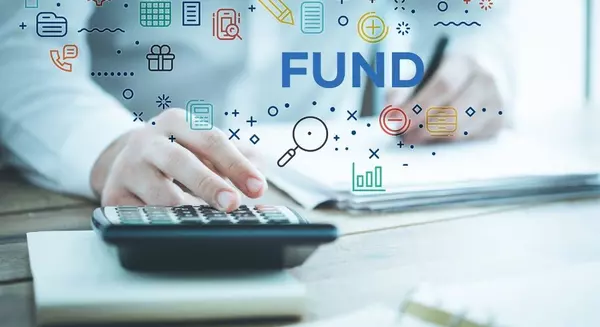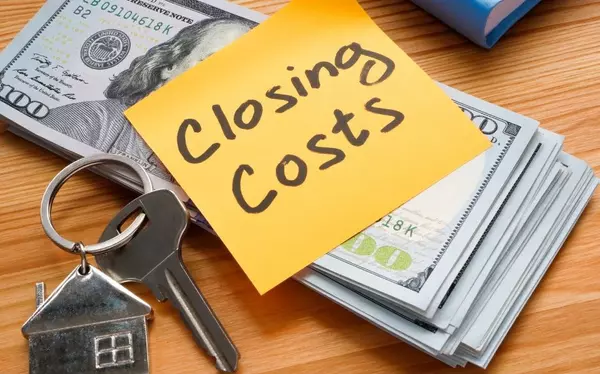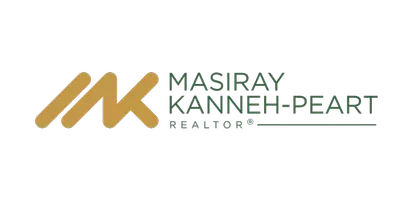What is Escrow in the Home Buying Process?

What is Escrow in the Home Buying Process?
Introduction
The home-buying process may be complicated, particularly for first-time buyers. From securing financing to finalizing the purchase agreement, every step requires careful attention to detail. One crucial aspect of this process is escrow, a term that often confuses many prospective homeowners.
Escrow plays a vital role in ensuring a smooth and secure transaction between the buyer and seller. It acts as a neutral third party that holds funds and documents until all conditions of the sale are met. This means that neither the buyer nor the seller can access the funds until the transaction is complete, providing peace of mind for both parties.
Understanding escrow is essential for anyone involved in real estate transactions. It helps prevent potential disputes and ensures that both parties fulfill their obligations before the transfer of ownership occurs. This blog post aims to demystify escrow by explaining its purpose, how it works, and why it is a critical component of the home buying process.
By the end of this post, you will have a clearer understanding of escrow and its importance, making you better prepared for your own home buying journey.
Definition of Escrow
Escrow is a legal arrangement in the home buying process where a neutral third party holds and manages funds and documents on behalf of the buyer and seller until all conditions of the sale are met. This guarantees a safe and fair transaction for all sides.
In a typical home purchase, escrow acts as an intermediary, safeguarding the buyer's earnest money deposit and other necessary funds while ensuring that all contractual obligations are fulfilled. This process begins when the buyer and seller agree to a contract, and the buyer deposits funds into an escrow account.
The role of escrow in the home buying process is crucial. It helps to mitigate risks by ensuring that neither the buyer nor the seller can access the funds until all agreed-upon conditions are satisfied. This includes completing inspections, appraisals, and securing financing. Once these conditions are met, the escrow officer disburses the funds to the appropriate parties, facilitating the transfer of ownership.
Key parties involved in an escrow account include the buyer, seller, and the escrow officer or agent. The escrow officer is responsible for managing the account, handling the funds, and ensuring that all conditions of the sale are met before releasing the money. This neutral third party plays a critical role in maintaining trust and transparency throughout the transaction.
How Escrow Works
Escrow is an integral part of the home buying process, providing a structured and secure way to handle the transaction. Here's a step-by-step look at how escrow works:
- Initial Agreement Between Buyer and Seller: The process begins when the buyer and seller come to an agreement on the terms of the sale, including the purchase price and any contingencies. This agreement is formalized in a purchase contract.
- Opening an Escrow Account: Once the contract is signed, an escrow account is opened with a neutral third party, typically an escrow company or an escrow officer. This account will hold all funds and important documents related to the sale until the transaction is completed.
- Depositing Funds and Documents: The buyer deposits earnest money into the escrow account as a sign of good faith. Additional funds, such as the down payment, will also be deposited into this account. Simultaneously, the seller provides the necessary documents, such as the deed, to the escrow agent.
- Escrow Instructions and Agreements: Both parties provide detailed instructions to the escrow officer outlining the conditions that must be met for the transaction to close. These instructions include contingencies like home inspections, appraisals, and securing financing.
- Common Terms and Conditions in Escrow Agreements: Escrow agreements often include terms related to the completion of inspections, title searches, and obtaining homeowners insurance. Both parties must fulfill these conditions for the transaction to proceed smoothly.
By following these steps, escrow ensures that all aspects of the home buying process are handled transparently and securely, protecting both the buyer and the seller.
Types of Escrow Accounts
Escrow accounts play a crucial role in the home buying process, offering security and structure for various financial aspects of the transaction. There are three main types of escrow accounts: buyer’s escrow account, seller’s escrow account, and lender’s escrow account for property taxes and insurance.
Buyer’s Escrow Account
A buyer’s escrow account is established when the buyer deposits earnest money and other necessary funds to demonstrate their commitment to the purchase. This account holds the funds until all the conditions of the sale are met. It ensures that the buyer’s money is protected while the purchase agreement’s terms, such as inspections and appraisals, are fulfilled.
Seller’s Escrow Account
The seller’s escrow account is less common but can be used to hold any funds the seller is required to provide. This could include repairs or other contingencies specified in the purchase agreement. Once the conditions are met, the escrow agent will release these funds to the appropriate parties, ensuring that the seller meets their obligations before the transaction is finalized.
Lender’s Escrow Account for Property Taxes and Insurance
After the sale is completed, a lender’s escrow account, also known as an impound account, may be set up to manage ongoing property-related expenses. The lender collects a portion of the property taxes and insurance premiums from the borrower’s monthly mortgage payments and holds these funds in the escrow account. When these expenses are due, the lender pays them on behalf of the homeowner, ensuring timely payments and avoiding potential penalties.
Each type of escrow account serves a specific purpose, providing protection and ensuring that all financial obligations are met throughout the home buying process.
Benefits of Escrow
Escrow offers significant benefits in the home buying process, providing essential protection and streamlining transactions for both buyers and sellers.
Protection for Both Buyer and Seller
Escrow acts as a neutral third party, ensuring that both the buyer and seller fulfill their contractual obligations before funds and property are exchanged. This impartial oversight helps prevent potential disputes and protects both parties' interests, fostering trust and confidence in the transaction.
Ensures Funds Are Available for the Transaction
One of the primary benefits of escrow is ensuring that the necessary funds are available and securely held until all conditions of the sale are met. The buyer deposits earnest money and other required funds into the escrow account, demonstrating their commitment to the purchase. The seller, in turn, knows that the funds are available and will be released once the agreed-upon terms are satisfied, reducing financial risk.
Simplifies the Transaction Process
Escrow simplifies the complex home buying process by centralizing and managing all necessary funds and documents. The escrow officer coordinates with various parties, such as the buyer, seller, real estate agents, and lenders, to ensure that all requirements are met. This organized approach streamlines the transaction, reducing confusion and minimizing delays. By handling the disbursement of funds and the transfer of property, escrow ensures a smooth and efficient closing process.
Common Escrow Issues and Ways to Avoid Them
Escrow is designed to ensure a smooth real estate transaction, but common issues can arise. Understanding these potential problems and how to avoid them can help ensure a successful closing.
Delays in Closing
One of the most frequent issues in escrow is a delay in closing. These delays can be caused by unresolved contingencies, incomplete inspections, or financing holdups. To avoid delays, ensure all necessary inspections and paperwork are completed promptly and communicate regularly with all parties involved. Staying proactive and organized can significantly reduce the chances of closing delays.
Discrepancies in Paperwork
Discrepancies in paperwork can also cause significant issues during escrow. Errors in contracts, missing signatures, or incorrect information can lead to delays and disputes. To avoid these problems, carefully review all documents for accuracy and completeness. It’s also helpful to work with experienced professionals, such as real estate agents and escrow officers, who can catch and correct errors early.
Insufficient Funds in the Escrow Account
Another common issue is insufficient funds in the escrow account. This can occur if the buyer fails to deposit the necessary funds or if there are unexpected costs. To prevent this, ensure that you have a clear understanding of all financial requirements and maintain open communication with your lender and escrow officer. Verify that all required funds are deposited promptly and accurately.
Tips for a Smooth Escrow Process
To ensure a smooth escrow process, follow these tips:
- Maintain order and maintain track of all paperwork and deadlines.
- Communicate regularly with all parties involved.
- Complete inspections and address any issues promptly.
- Double-check all paperwork for accuracy.
- Ensure all necessary funds are available and deposited on time.
By being proactive and attentive, you can avoid common escrow issues and facilitate a successful real estate transaction.
The Closing Process
The closing process is the final stage in the home buying journey, where all the efforts culminate in the transfer of property ownership. Understanding the key steps involved ensures a smooth and successful closing.
Final Walkthrough and Inspection
Before closing, the buyer conducts a final walkthrough of the property to verify that it is in the agreed-upon condition and that any requested repairs have been completed. This inspection ensures there are no last-minute surprises and that the property is ready for transfer.
Signing Closing Documents
During the closing meeting, both parties sign numerous legal documents to finalize the sale. These documents typically include the deed, loan agreement, and closing disclosure. It is crucial for the buyer and seller to carefully review and understand each document before signing to avoid any issues.
Transfer of Ownership
Once all documents are signed, the property’s ownership is officially transferred from the seller to the buyer. The deed, which proves ownership, is recorded with the local government, making the transaction a matter of public record. This step legally confirms the buyer as the new owner of the property.
Disbursement of Funds from the Escrow Account
The final step in the closing process is the disbursement of funds from the escrow account. The escrow officer distributes the funds to the appropriate parties, including paying off any existing liens on the property and releasing the remaining balance to the seller. The buyer’s mortgage lender also releases the loan funds to complete the purchase.
FAQs About Escrow
Understanding escrow can be challenging, so here are some common questions and detailed answers to help clarify the process.
What is an escrow account?
An escrow account is a neutral, third-party account that holds cash and papers throughout a real estate transaction. It ensures that both the buyer and seller fulfill their contractual obligations before the transfer of ownership and funds takes place.
Why is escrow necessary?
Escrow provides security for both the buyer and seller by ensuring that all conditions of the sale are met before the transaction is finalized. This includes verifying that funds are available, necessary inspections are completed, and all paperwork is in order.
How long does the escrow process take?
The escrow process typically takes 30 to 60 days, but this can vary depending on the complexity of the transaction and any contingencies that need to be addressed. Timely completion of required tasks and clear communication with all parties can help expedite the process.
What are escrow fees?
Escrow fees are charges for the services provided by the escrow company or agent. These fees are usually split between the buyer and seller and can vary based on the transaction's complexity and location.
Can escrow be canceled?
Yes, escrow can be canceled if both parties agree or if certain conditions of the sale are not met. The terms for cancellation should be outlined in the escrow instructions and the purchase agreement.
Conclusion
In the home buying process, escrow serves as a critical safeguard, ensuring that transactions are secure and fair for both buyers and sellers. By holding funds and documents in a neutral account, escrow helps mitigate risks, prevent disputes, and ensure that all conditions of the sale are met before the transfer of ownership. Understanding the purpose and mechanics of escrow, as well as common issues and how to avoid them, empowers buyers and sellers to navigate their real estate transactions with confidence. By following best practices and staying informed, you can ensure a smooth and successful home buying experience.
Categories
Recent Posts










